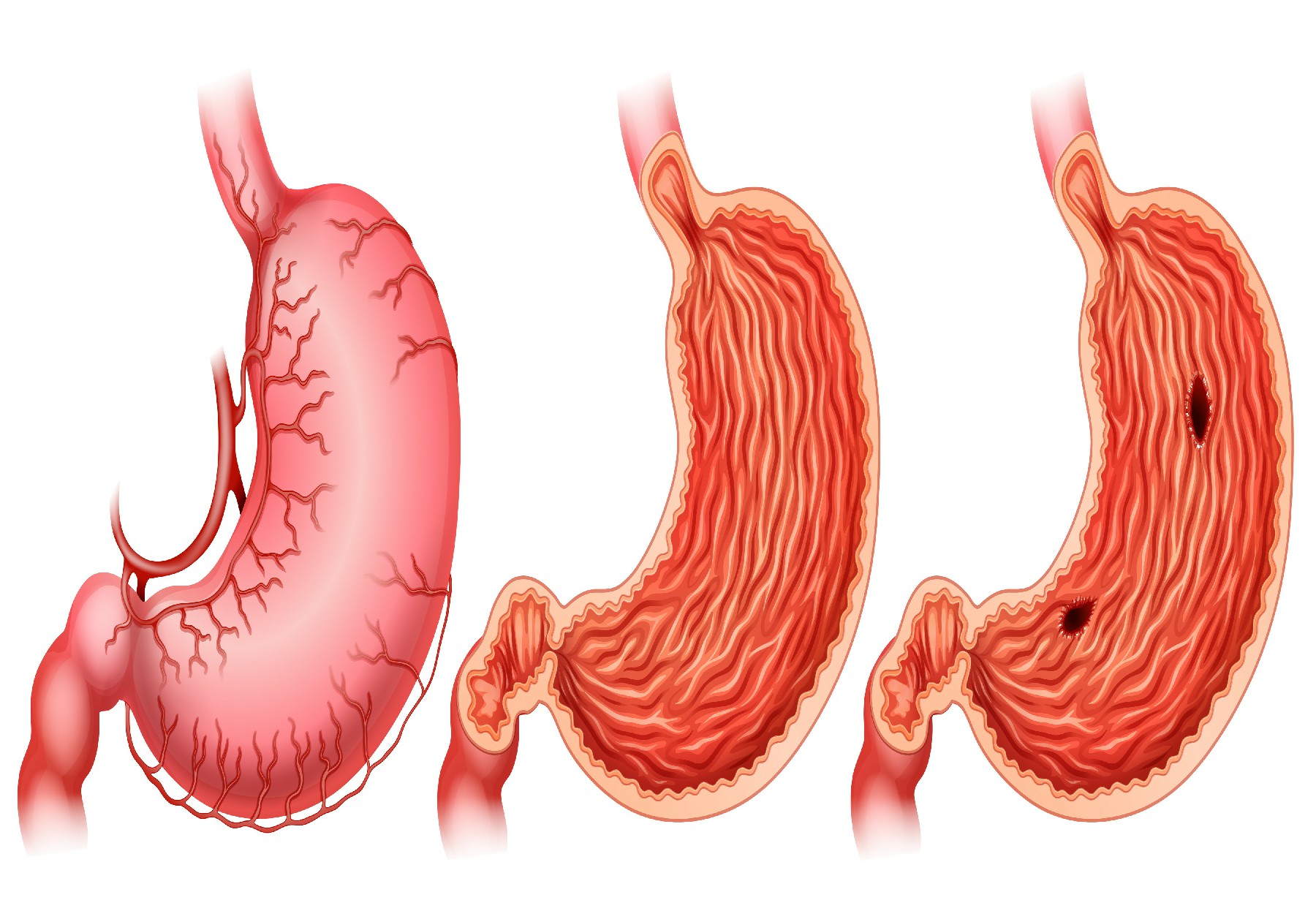
Stomach cancer is a form of cancer that starts in the stomach and spreads throughout the body. The stomach is a muscular sac located in the upper middle of your abdomen, just below your ribs. Your stomach takes in and retains the food you consume before breaking it down and digesting it.
Stomach cancer, also referred to as gastric cancer, may occur in any part of the stomach. Stomach cancers grow in the main part of the stomach in most parts of the world (stomach body)
The most common causes of gastrointestinal cancer is infection with H. pylori, a common bacteria that causes ulcers. Gastritis, a form of long-term anaemia called pernicious anaemia, and polyps in your stomach may all increase your chances of getting cancer.
Other factors that appear to contribute to the risk include:
Stomach cancer can be fought with a variety of therapies. The one you and your doctor select will be determined by how long you’ve had the disease and how far it’s spread across your body, known as the cancer stage:
stage 0: This occurs when a group of abnormal cells forms on the internal lining of your stomach, which could lead to cancer. Surgery is normally successful in curing it. Your doctor can remove all or part of your stomach, as well as nearby lymph nodes, which are small organs that help your body fight infection.
stage 1:You have a tumour in the lining of your stomach, and it may have spread to your lymph nodes at this stage. You’ll probably have surgery to remove part or all of your stomach, as well as surrounding lymph nodes, just as you did in stage 0. Chemotherapy or chemoradiation can also be used. These therapies may be used to shrink the tumour before surgery and to remove any cancer that remains afterward.
Chemotherapy is a treatment that uses medications to kill cancer cells. Chemoradiation is a combination of chemotherapy and radiation therapy that uses high-energy rays to kill cancer cells.
Stage 2: The cancer has spread to the stomach’s deeper layers and possibly to neighbouring lymph nodes. The primary procedure is still surgery to remove part or all of your stomach, as well as surrounding lymph nodes. You’ll almost certainly receive chemo or chemoradiation before the procedure, and you can even receive one afterward.
Stage 3: The cancer may have spread to all layers of the stomach, as well as nearby organs such as the spleen or colon. It may be larger or smaller, but it will reach deep into the lymph nodes.
Surgery to remove the whole stomach is normally combined with chemo or chemoradiation. This will sometimes help you get rid of it. If not, it should at the very least alleviate symptoms.
If you’re too ill for surgery, the options are chemo, radiation, or a combination of the two, depending on your body’s capabilities.
Stage 4: Cancer has spread far and wide to organs such as the liver, lungs, and brain at this point. It’s much more difficult to treat, but your doctor will help you control your symptoms and provide some relief.
Lorem ipsum dolor sit amet, consectetur adipiscing elit. Ut elit tellus, luctus nec ullamcorper mattis, pulvinar dapibus leo.

© 2024 Marinas Clinic All rights reserved.Powered by Zero Gravity Technologies.